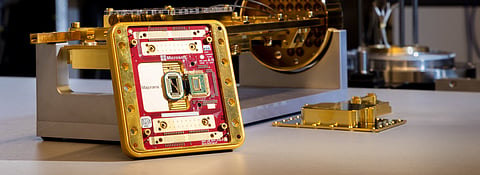

BENGALURU: In just about a year, quantum computing has gained a lot of traction and it is today one of the most talked-about technologies that companies are keen to explore. On Wednesday, Microsoft launched its first quantum computing chip- Majorana 1, the first quantum processing unit built on a topological core. The company claimed it is less prone to errors.
"The quantum world operates according to the laws of quantum mechanics, which are not the same laws of physics that govern the world we see. The particles are called qubits, or quantum bits, analogous to the bits, or ones and zeros, that computers now use," Microsoft said.
Microsoft believes that this breakthrough will allow it to create a truly meaningful quantum computer not in decades, but in years.
"The qubits created with topoconductors are faster, more reliable, and smaller. They are 1/100th of a millimeter, meaning we now have a clear path to a million-qubit processor. Imagine a chip that can fit in the palm of your hand yet is capable of solving problems that even all the computers on Earth today combined could not," Microsoft CEO Satya Nadella said.
Experts point out that quantum computing can solve many complex problems. This technology can solve problems that even supercomputers could not and it can be put to use across several industries, including healthcare.
Last year in December, Google announced Willow, its latest quantum chip. Experts also noted that this new technology will be extremely useful in healthcare, especially drug discovery. Also, in fields like aerospace, finance etc.
Rahul Mahajan, CTO of Nagarro, said the quest for stable quantum computing has reached a turning point. We've moved beyond fragile qubits to Topoconductors class Qubits, leveraging the unique properties of 'Majoranas' (kind of half-electrons).
"This innovation allows us to create reliable and scalable topological qubits, a goal pursued since the 1930s. The implications are immense, promising a revolution in materials science, energy, medicine, and beyond, through advanced simulations combining classical and quantum computing," he explained.